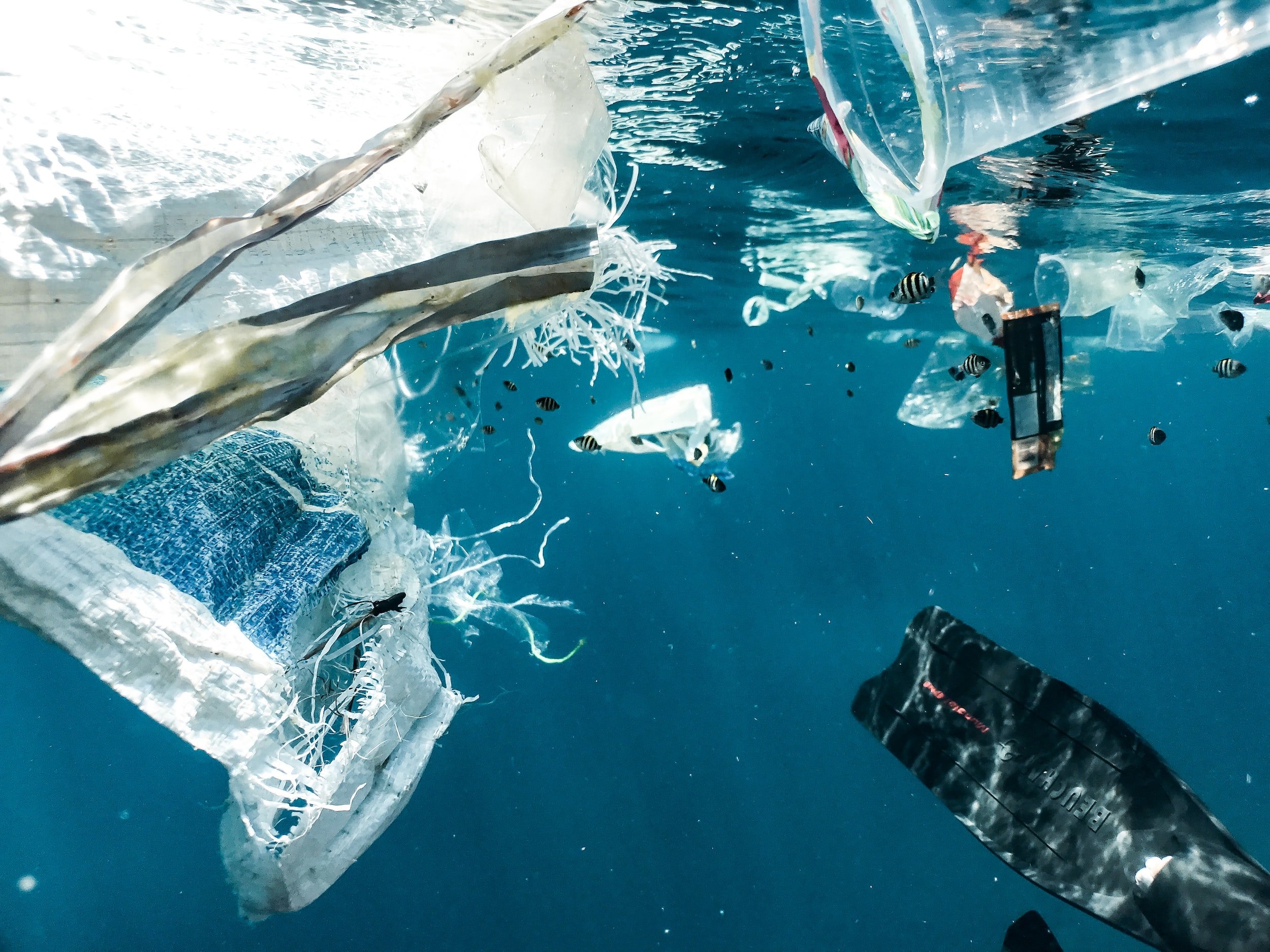
Ocean Pollution






Pollution can be divided into different categories. Water, air and land pollution are the three major forms of environmental pollution.
Pollution also refers to excessive human activity, such as light, thermal or noise pollution.
In 2023, world population reached 8 billion inhabitants, with Asia being the continent with highest population density. Increasing demand for natural resources and lack of, or inefficient waste management at a global scale increase environmental pressure in vulnerable ecosystems.
occurs when solid, liquid and gases are discarded, released, spilled or abandoned in the environment or when any form of energy (e.g. noise, radiation, etc.) is released into the environment at a rate faster than it can be dispersed or safely stored. Pollution refers to both to natural and human-made materials that are created, consumed and discarded in an unsustainable manner.
Ocean pollution:
One example of increase in demand can be seen in plastic production in terms of plastic production since the 1950s.
Similarly when compared with the mismanaged plastic waste data, it is possible to see that import and export of waste is requires adequate management to avoid increase environmental pressure, especially in areas with high population density, where higher risk of a pollution event would be likely to occur.
A consequence of excessive consumption, ineffective waste management streams in Europe and nearby countries, is the leakage of waste, particularly plastics to water streams. Despite efforts around coastal areas to retrieve marine litter through regular cleanups, emissions to the environment are likely to occur.
If you would like to learn more about this topic, do not hesitate to reach out and contact us for a training session.
Since China banned the import of Western waste in 2018, that the global waste value chains, including import and export of waste, as well as recycling value chains, had to adapt to the new circumstances. In Europe, this meant that values chains were diverted to other countries, including countries in the Mediterranean Sea, that either lack the waste management infrastructure or have lower efficiency rates when compared to waste management in Europe.
Resources
Websites
European Environment Agency | Waste management
World Health Organization | Air pollution
National Environmental Protection Agency | Waste
Citizens Information | Noise pollution
The Story of Stuff by Annie Leonard
Import and export of waste by material type in Europe
Recycling rates in Europe by waste stream
Further readings
Microplastics in the marine environment: Sources, Impacts & Recommendations
Joyce, H., Nash, R., Frias, J., White, J., Cau, A., Carreras-Colm, E., Kavanagh, F. (2023) Monitoring microplastic pollution: The potential and limitations of Nephrops norvegicus. Ecological Indicators, 154, 110441.
Nash, R., Joyce, H., Pagter, E., Frias, J., Guinan J., Healy, L., Kavanagh, F., Deegan, M., O’Sullivan, D., (2023) Deep Sea Microplastic Pollution Extends Out to Sediments in the Northeast Atlantic Ocean Margins Environmental Science and Technology, 57, 1, 201–213
Frias JPGL, Nash, R. (2019) Microplastics: Finding a consensus on the definition. Marine Pollution Bulletin 138, pp., 145-147.

